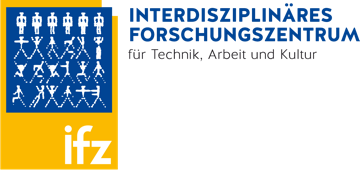Keysselitz, Bärbel | Germany

Bärbel Keysselitz is a Phd student and research assistant at the Institute of Political Science at RWTH Aachen University. She has a master’s degree in political science as well as in linguistics and communication studies. In her research she focuses on social aspects of innovations and technologies, the social embedding of science, technology and innovation as well as interdisciplinary and transdisciplinary collaboration and knowledge production. Lately, she has been working in two research projects – Innovationsgruppe ‘Regional Dialogue on Energy Transitions’ and Forschungscampus ‘Future Electrical Networks’– that shall function as empirical cases for her PhD thesis. Both projects are funded by the German Ministry of Education and Research (BMBF).
During her stay in Graz (April-May) Bärbel Keysselitz will elaborate on theoretical foundations of her PhD thesis as well as on research in STS that is relevant for her studies.
BMBF-Innovationsgruppe ‘Regional Dialogue on Energy Transitions’
This joint research project (research institutes, industrial partners and municipalities) aims at fostering new system solutions in sustainable land management by enabling a dialogue between all relevant stakeholders, namely: municipalities, power supply companies, citizens, environmental associations, etc. That way, a regional energy transition shall be governed that is socially acceptable, environmentally compatible, resource-efficient and participatory. Central to the research project is a (social) innovation-oriented mutual learning process that aims at implementing a socio-technical transition towards a low-carbon energy system in the project region. Bärbel Keysselitz is concerned with the heterogeneous collaboration and interdisciplinary knowledge production in this Project.
BMBF-Forschungscampus ‘Future Electrical Networks’
The focus of this joint research project (15 institutes of RWTH Aachen University) are direct current (DC) systems for the medium voltage level. The overall objective of the FEN-Consortium (RWTH-Institutes and companies from different fields: component manufacturers, system suppliers and utilities) is to enable a more efficient and flexible transmission and distribution of electrical energy without compromising the recognized high level of supply security in Germany. Ultimately, it comes to a sustainable, climate-friendly energy supply of the future at affordable costs. The Consortium works alongside technical, social and economic issues and evaluates public acceptance of new technologies for electrical power supply. In this research project Bärbel Keysselitz focuses on social aspects in the process of generating and implementing technologies and innovations.
Selected Presentations
Keysselitz, Bärbel: Inter- and transdisciplinary research settings as spaces for the generation and implementation of innovations in the context of socio-technical energy system transitions. Swedish STS Summer School ‘STS as an Engaged Program’, August 4-8, 2014, Vadstena, Sweden.
Keysselitz, Bärbel: Thinking, Planning and Making Futures: Towards a Better Understanding of Energy Scenarios in Interdisciplinary Research Settings. STS Conference Graz ‘Critical Issues in Science and Technology Studies’, May 5-6, 2014, Graz, Austria.
In spring 2015, I spent two month at the IAS-STS in Graz. It was a perfect time, place and surrounding to calm down and concentrate on my PhD project. Graz is a lovely city. There is culture, good food, and beautiful nature. The IAS-STS provides great facilities and – as important – a very welcoming atmosphere. I really enjoyed the discussions with other fellows and IFZ staff members over a cup of coffee or during lunch. That did not only help me advance my professional work but also made me feel home in a foreign town. Thanks to the IFZ staff members, the other fellows and visiting scholars as well as my roommates, Graz was an experience I would not want to miss!
Bärbel Keysselitz, Germany, IAS-STS Research Fellow 2014/2015
